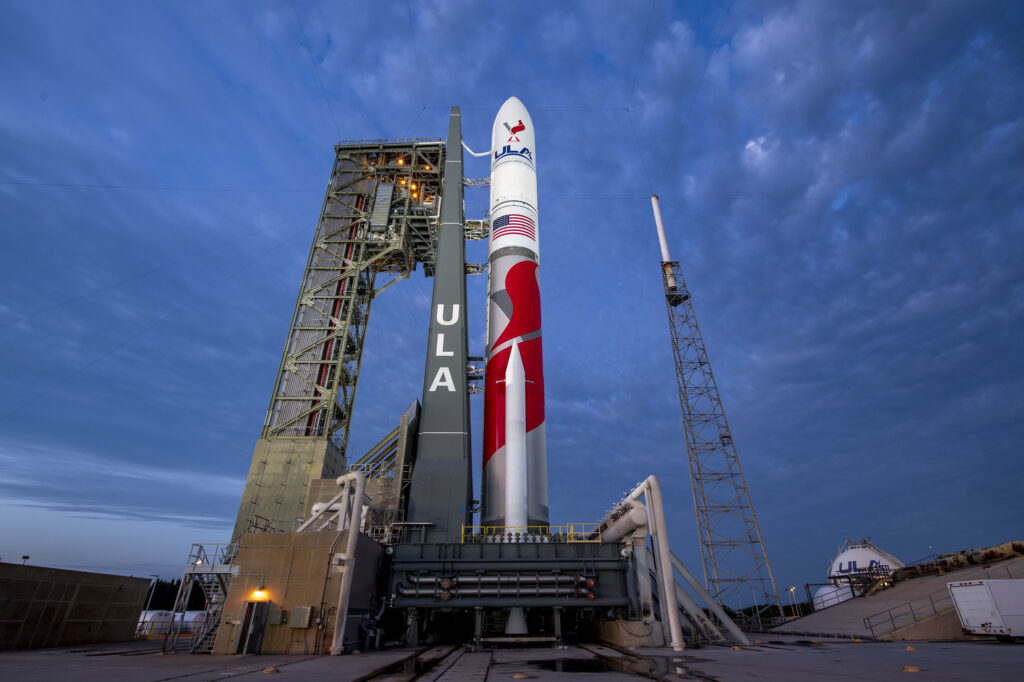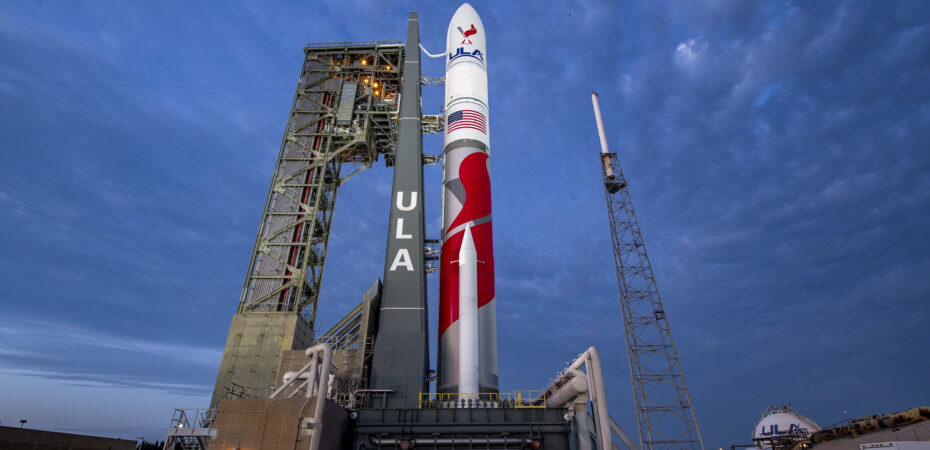By Urban Koi – Space Systems Engineering, Johns Hopkins University
USSF-51 will be the last national security launch for the Atlas 5 as ULA prepares to complete Vulcan’s certification for Space Force missions.
United Launch Alliance (ULA) is preparing for its final military launch of the Atlas 5 rocket, scheduled for July 30, 2024. This mission (designated USSF-51) will carry a classified payload to Geostationary (GEO) Earth orbit, which marks ULA’s 100th national security launch and the Atlas 5’s 53rd. The launch will take place from Space Launch Complex 41 at Cape Canaveral Space Force Station.
USSF-51 is also the first ULA launch under the National Security Space Launch (NSSL) Phase 2 contract, awarded by the Space Force to ULA and SpaceX in 2020. While SpaceX has already conducted its first Phase 2 mission, ULA’s schedule was delayed due to development issues with its next-generation Vulcan Centaur rocket. Initially, USSF-51 was to be launched on the Vulcan Centaur, but due to delays, it was reassigned to the Atlas 5 for schedule certainty.
Despite this being the final military launch for Atlas 5, ULA plans to use the remaining 16 Atlas 5 rockets for commercial and non-defense missions, including crewed launches. The company is also preparing for the transition to the Vulcan Centaur rocket, which debuted in January 2024. ULA aims to increase its launch cadence to twice monthly to meet the demands of national security and commercial launches. The company has reconfigured its launch complex to support both Atlas and Vulcan operations, allowing for flexible and frequent launches.
Looking ahead, ULA is preparing two NSSL missions, USSF-106 and USSF-87, for the Vulcan Centaur, with launches tentatively scheduled for late 2024, pending Vulcan’s certification.
Cybersecurity Implications
TRANSITION VULNERABILITY
As ULA transitions from Atlas 5 to Vulcan Centaur, there may be an increased risk of vulnerabilities due to the integration of new processes with heritage systems. “We have 16 remaining Atlases to fly, and these will be interwoven with Vulcan flights,” Gary Wentz, ULA’s Vice President of Government and Commercial Programs addresses the U.S. Space Force’s concerns. “Our systems are designed to accommodate this flexibility.” The new Vulcan Centaur rocket incorporates advanced technologies, such as Blue Origin’s BE-4 engines and Northrop Grumman’s boosters, which require robust cybersecurity measures to maintain integrity, prevent unauthorized access, and protect intellectual property.
MISSION-CRITICAL DATA
With Vulcan Centaur slated to carry classified payloads for the National Reconnaissance Office, ensuring the confidentiality and integrity of mission data becomes even more crucial. Given the strategic importance of these launch vehicles for national security, cybersecurity procedures must withstand potential attacks from foreign adversaries. As ULA undergoes organizational changes during this transition, implementing strong measures to prevent and detect insider threats becomes critical. The evolving nature of cyber threats requires ULA to implement continuous monitoring systems and adapt their cybersecurity strategies.
Source: ULA Prepares for Final Military Launch of Atlas 5 Rocket | SpaceNews

Credit: ULA
